Whether you teach in a public, private or homeschool there are 5 critical things that you need to know about your kids that are struggling to learn to read.
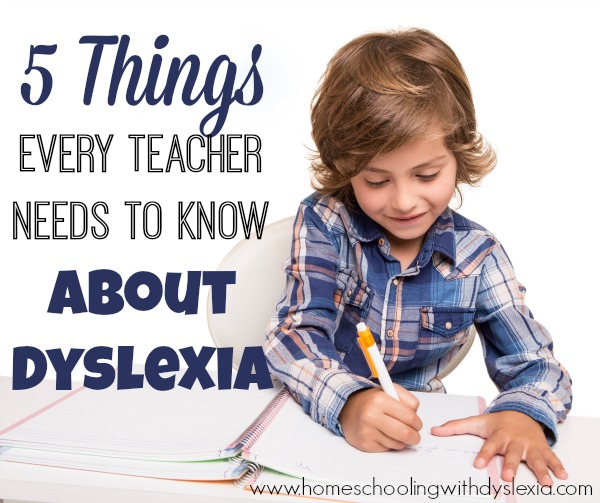
Kids with dyslexia are not lacking in intelligence. I know it looks that way when you are teaching the same thing over and over to no avail. Eighty percent of your students DO get it. Studies have shown that people with dyslexia, without exception, have average to above average intelligence.
Dyslexia is genetic and not caused by poor parenting. Take it from me, the parent of 7 kids with dyslexia, this is a terrible myth. Although diet, media consumption and a lack of discipline do not help kids with dyslexia (or any kid!) dyslexia is an inherited learning difference. Parents of kids with dyslexia desperately want for their kids to be able to read, write and spell and will do just about anything to make sure that happens. Lets work together!
Kids with dyslexia learn differently. Kids {and adults} with dyslexia are right brained learners. The graphic below is a great illustration of this difference. Read this post for simple, effective ideas for ways to teach your students with dyslexia.
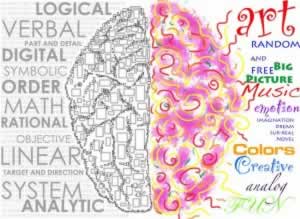
Kids with dyslexia are not lazy! Ironically, they are often working harder than the traditional learners in your class. It is indescribably frustrating for them to work so hard and still be behind and to be receiving only mediocre grades. They need your understanding not your criticism. One of the all time best ways to understand what it is like to be dyslexic is to go through a dyslexia simulation.
All kids with dyslexia can learn to read with the RIGHT methods. Over 100 years ago, extensive research on the phenomenon of dyslexia honed in on the kids of teaching methods that are effective with dyslexic learners. For more ideas on understanding your student that struggles with reading, read this series, How to Teach a Child With Dyslexia to Read.
It is believed that 1 in 5 students will have dyslexia – either mild, moderate or profound. The majority of teachers have no training about dyslexia, the common signs and symptoms or how to teach kids who are struggling. If you have students who are struggling, you may benefit from one of our courses on teaching kids with dyslexia.
The Importance of Parent/Teacher Education
This site exists to educate and encourage families with dyslexia. Dyslexia does not need to be a disability if the the teacher understands how dyslexics learn and the right teaching methods are used. For more in depth understanding about teaching kids with dyslexia, consider taking one of my parent dyslexia courses.
Courses now available:
In Course One of the Parent Dyslexia Training Courses you will learn:
- To more fully understand the many facets of the dyslexic mind
- To understand how dyslexics learn and methods you can implement today to dramatically improve learning
- To be aware of the other areas affected by dyslexia
- To better understand and nurture the seldom mentioned, inherent strengths of the dyslexic mind
- You will leave this course feeling educated and empowered to help the dyslexic people in your life.
- You will be able to reject the myths and embrace the strengths associated with dyslexia so your kids can live and learn freely.
Course Topics:
- Making the decision to homeschool, including how to answer any critics that insist that the schools are the educational experts.
- The truth about the state of special education in our public schools.
- Common emotional issues for parents and kids and how to overcome them.
- How to get started homeschooling; including legalities and finding local support.
- Tips on finding and modifying homeschool curriculum for the dyslexic student.
- Teaching methods, including how to balance accommodations and remediations.
- When to get help in the form of diagnostic testing and educational therapy.
- Strategies for getting it all done.
In this course, Reading Instruction That Works, you will learn to:
- Understand the research about dyslexia so you can evaluate the myriads of programs, supplements and services that are offered to parents of dyslexics.
- Understand the research-based methods of reading instruction that really work with the dyslexic learner.
- Find a program, curriculum or other service to fit your family’s needs.
- How much does dyslexia remediation cost?
- How long does it take?
- What about those ‘alternative’ treatments and therapies? Do they work? How can we know?
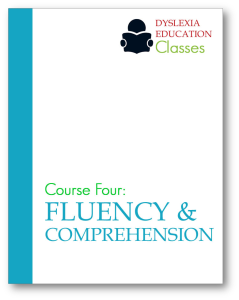 Research is clear that when students with dyslexia receive explicit instruction with methods that work, they can learn to read and write and spell. However, for some dyslexics, fluency is never reached, a fate that negatively affects them in many ways.
Research is clear that when students with dyslexia receive explicit instruction with methods that work, they can learn to read and write and spell. However, for some dyslexics, fluency is never reached, a fate that negatively affects them in many ways.
In this class you will learn:
- what reading fluency is and how it develops
- how fluency affects comprehension
- nine of the most effective, research-based methods for increasing reading fluency
- easy-to-implement methods to enhance your child’s reading comprehension at home
What you will learn in this class:
- why people with dyslexia struggle with spelling
- the best methods for teaching spelling
- the power of studying morphology and etymology with your dyslexic students
- 3 simple ways to teach morphology to your students
- the best accommodations for students with dyslexia
- how to balance accommodations with remediation
For more information on how theses courses work, visit our Parent Dyslexia Courses Page.
Stay in Touch
We have quite an active Facebook community where I frequently post articles of interest and encouragement. I also have a growing Pinterest Page with a wide variety of teaching tips for all subjects.
You can also subscribe to receive blog updates via email below.
Join the newsletter
Subscribe to get our latest content by email.

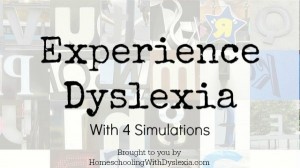


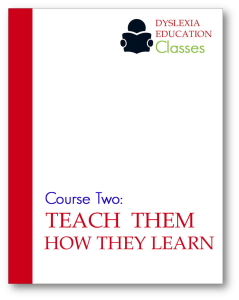
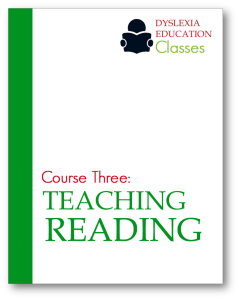
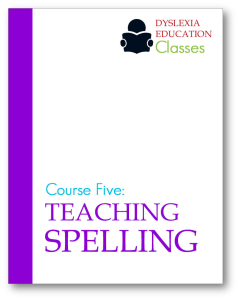





My daugther was diagnosed with dyslexia at the beginning of 2nd grade, but we went through outside sources instead of through the school. When she was in kinder and 1st grade, both her teachers suggested we hold her back, but we did not. We knew that there was something wrong and even though we had voiced our concerns with the school, they suggested to either hold her back or that any testing will not be given till 3rd grade. we could not wait till then. Now, we are looking for other ways to help her learn with many other ways. she is very strong visually, and we try to introduce tools to help her learn. Saw this site and would like to know more information.
Thank you so much for writing this! We had contemplated homeschooling for a very long time, eventually we decided to enter our daughter into online school. We are happy with it. So many people are trying to sway our decision. She is involved in gymnastics and swimming and I firmly believe that is “socialization” enough for her, you were able to articulate the feelings I had perfectly!